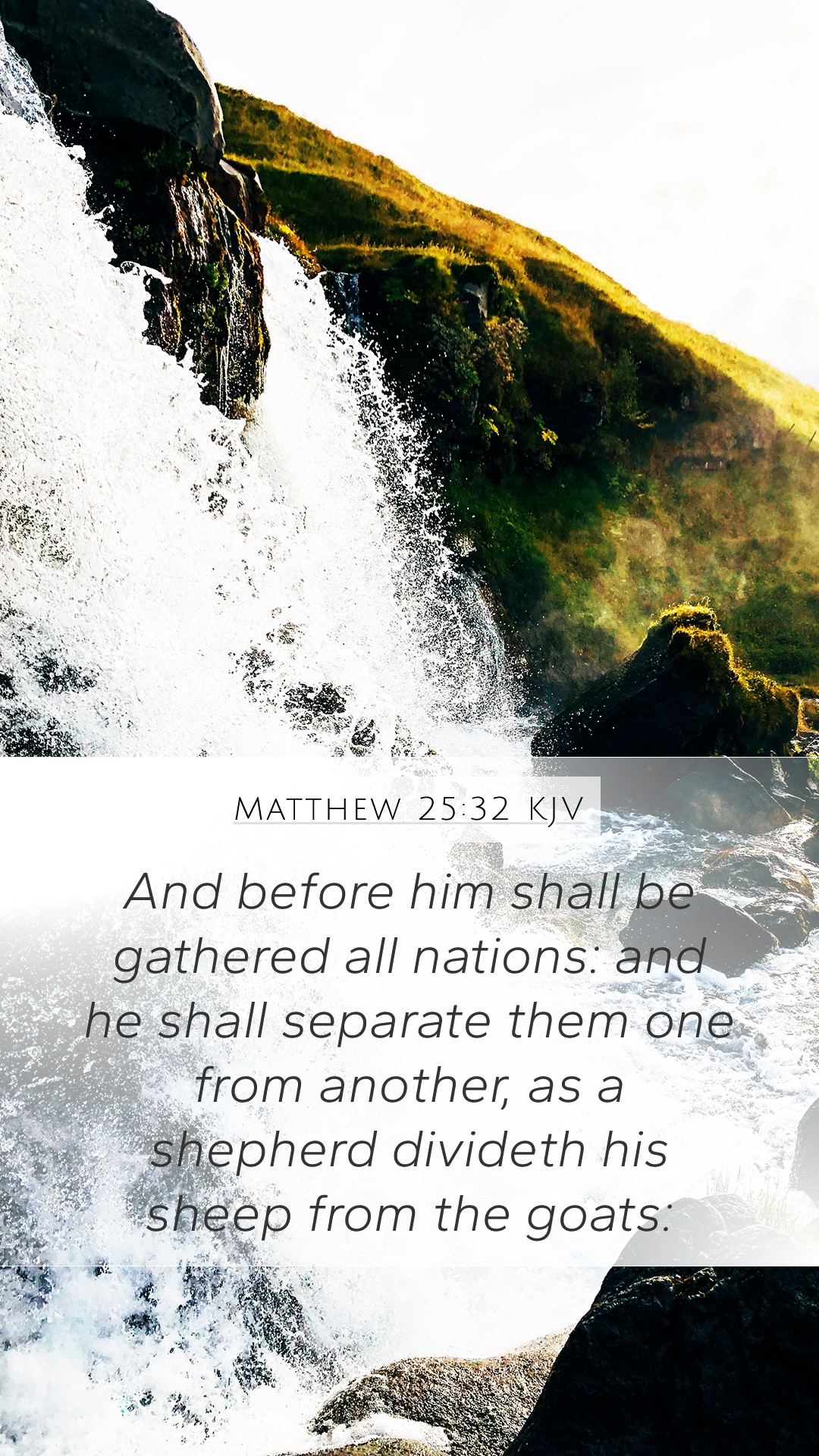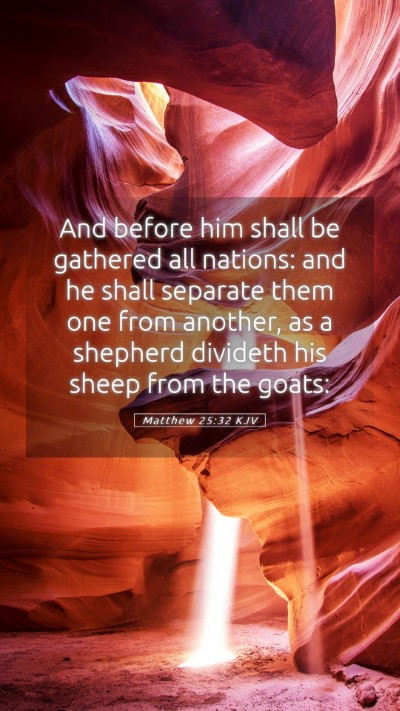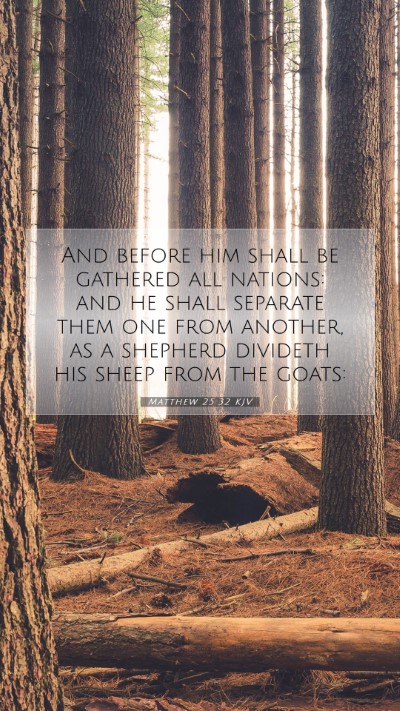Understanding Matthew 25:32: A Comprehensive Commentary
Matthew 25:32 states, "And before him shall be gathered all nations: and he shall separate them one from another, as a shepherd divideth his sheep from the goats." This verse serves as a pivotal moment in the parable of the Sheep and the Goats, which teaches profound truths about judgment, mercy, and the final reckoning of humanity.
Contextual Overview
This verse occurs in a context where Jesus describes the final judgment. It illustrates the gathering of all nations, signifying that no one will escape this moment. The imagery of shepherding introduces a familiar motif in scripture, emphasizing care, guidance, and the clear distinction between the faithful (the sheep) and the unfaithful (the goats).
Commentary Insights
Matthew Henry's Commentary
Matthew Henry emphasizes the authority of Christ as the Judge. He explains that the gathering of nations reflects God's sovereign rule over all people. Henry also notes the significance of separation; the sheep symbolize those who have followed Christ's teachings, while the goats represent those who have rejected His ways. This reflects the eternal consequences of one's choices in life.
Albert Barnes' Notes
Albert Barnes focuses on the nature of the gathering. He explains that "all nations" signifies inclusivity and underlines that God's judgment encompasses every individual, irrespective of their earthly status or nationality. Barnes elaborates on the shepherd analogy, indicating that Christ, as the Good Shepherd, not only leads but also explicitly separates those who belong to Him from those who do not.
Adam Clarke's Commentary
Adam Clarke delves into the symbols used in this passage. He elucidates that the act of dividing the sheep from the goats serves a dual purpose: to showcase divine justice and to highlight the mercy extended to the faithful. Clarke also links this separation to the end times and emphasizes that everyone's deeds will be scrutinized before God’s throne.
Application and Relevance
The imagery of the sheep and goats urges reflection on our lives and actions. As believers, the call is to live out our faith through love and good deeds. This verse prompts questions about our eternal state and challenges us to examine how we treat others, aligning our actions with the teachings of Christ.
Cross References
- Matthew 7:21-23: "Not everyone who says to me, 'Lord, Lord,' will enter the kingdom of heaven..." illustrates the need for genuine discipleship.
- John 10:11: "I am the good shepherd: the good shepherd giveth his life for the sheep," linking Jesus' role as the protector of His followers.
- Revelation 20:12: Describes the great white throne judgment, reinforcing the concept of divine evaluation at the end of time.
- 2 Corinthians 5:10: "For we must all appear before the judgment seat of Christ..." conveys the necessity of accountability for our actions.
- Psalm 95:7: "For he is our God; and we are the people of his pasture, and the sheep of his hand..." connects God’s people with the shepherd metaphor.
Conclusion
Matthew 25:32 is not merely a passage about separation, but also a profound teaching on the nature of Christ’s authority and the realities of final judgment. Through the insightful interpretations of Matthew Henry, Albert Barnes, and Adam Clarke, this verse is placed within a broader theological context that emphasizes accountability, faithfulness, and the mercy of God.
For those seeking bible verse meanings, bible verse interpretations, and bible verse explanations, this passage serves as an essential lesson on the last judgment and the importance of living a righteous, compassionate life in accordance with God's will.
Further Study
To gain deeper insights, consider exploring bible study resources, such as:
- Bible study guides: These can help navigate through the meanings of similar passages.
- Online Bible study: Virtual groups can provide diverse perspectives and foster discussion on the significance of Jesus' teachings.
- In-depth Bible verse analysis: Delving into the historical and cultural context can enhance understanding of difficult Bible passages.


